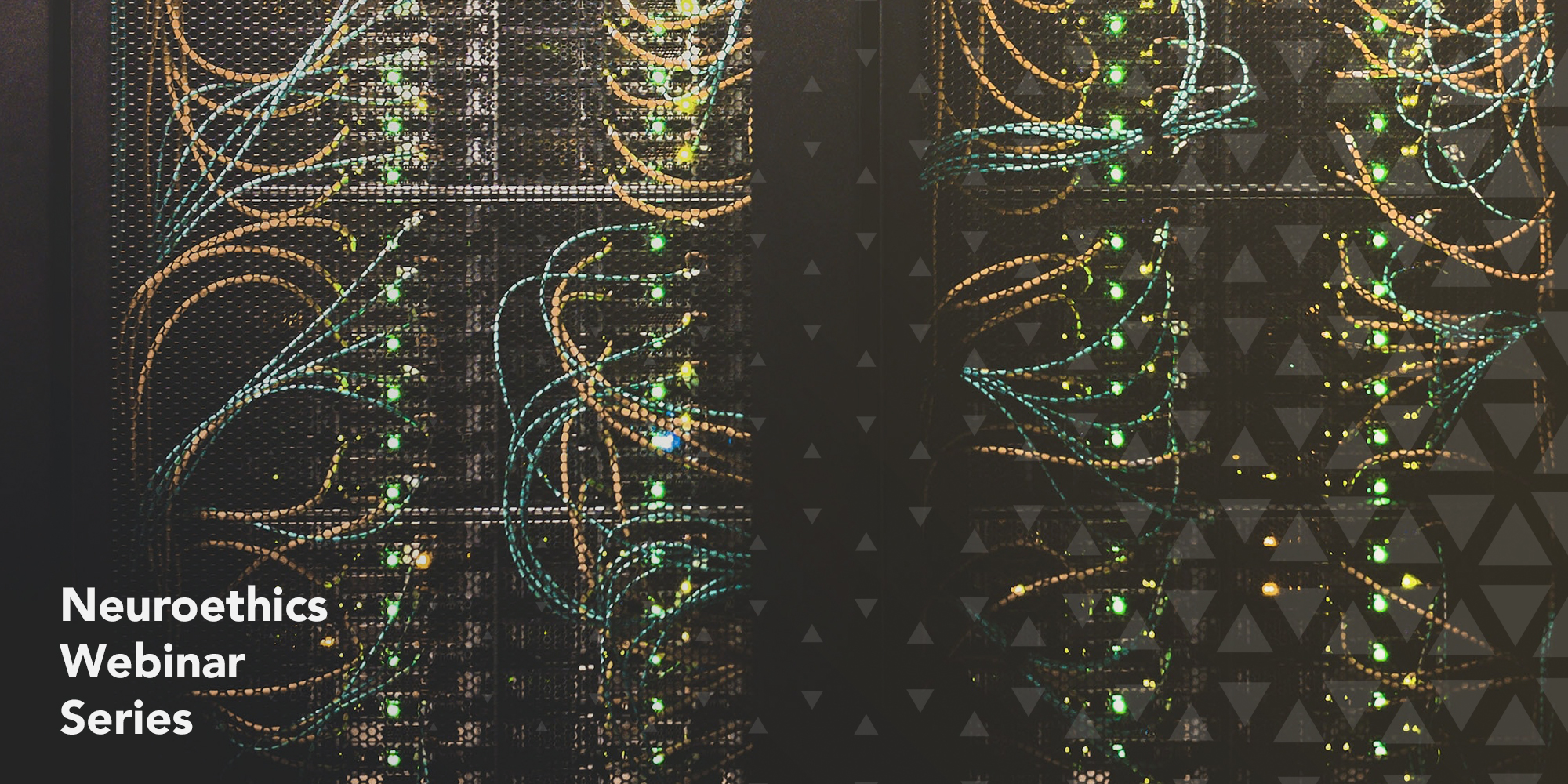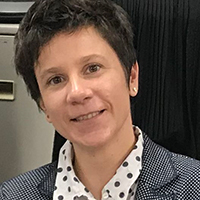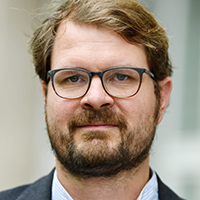Brain Data Governance and Neurorights The increasing use of neurotechnological devices for basic neuroscience research, clinical applications, but also in the consumer domain, creates substantial ethical and legal challenges for governing the access and use of human brain data collected by these devices. Furthermore, some neurotechnologies, such as AI-based closed-loop brain-computer interfaces, may interfere with a person's mental privacy or mental integrity which has given rise to a debate on the necessity and precise legal framing of neuroprotection laws, also referred to 'neurorights.' In this interdisciplinary panel discussion, panelists explored and discussed the technical, ethical, and legal dimensions of brain data governance and neurorights. Speakers include:
RecordingSummaryIn this webinar, an interdisciplinary panel discussed technological, ethical, and legal challenges in governing the access and use of human brain data collected in various contexts, such as for research or commercial purposes. Based on his experience in multi-center/cross-border research studies, Samir Das shared challenges in collecting and sharing human brain data, including issues of privacy and security, standardization and interoperability, and building technical infrastructure. In addition to providing several rather straightforward technical solutions, Das urged that an ethical framework that delineates detailed guidance on how to responsibly share data — such as the Ethics and Governance Framework in Canadian Open Neuroscience Platform — could be extremely valuable in addressing these challenges. Stephen Rainey also argued that recent advances in high-density recording of brain signals could lead to novel insights into brain activity, but such advances also raise critical ethical concerns. The fact that brain signals recorded and processed for one purpose could be reprocessed later for other purposes makes brain data sensitive. In particular regard to brain–computer interface (BCI) technology, data are being used for BCI device customization, which also makes the data personal. Moreover, because data collected from a large number of individual users become part of a BCI device’s operating system, it would be difficult to account for individual data once merged, which could impede the exercise of the right to personal data retrieval or deletion as provided in the European Union’s General Data Protection Regulation (GDPR). Focusing more specifically on legal issues, Fruszina Molnár-Gábor highlighted the need for specific regulations for different types of data. In terms of brain data, intrusion into privacy could be a more severe threat than is posed in other personal data due to the individuals’ lack of control over accessing brain data and deciding about its use. Losing control over data could also affect other rights, including the right to access, correction, or deletion under the GDPR. Yet given that data protection and privacy are not absolute rights, Molnár-Gábor emphasized that data security should be the understanding, and the result, of balancing these rights with other rights and interests — for example the freedom of research, and also interests in using data for commercial purposes. Collectively, the panel further discussed that given the highly multidisciplinary nature of brain data governance, the primary challenge lies more in balancing different conflicting cultures and interests, and agreeing upon common standards, than in implementing technical safeguards. Thus, it would be critical to incorporate different disciplinary insights in developing specific rules for brain data protection. One example would be adopting regulatory instruments such as the Code of Conduct in the GDPR. In addition, the panel proposed other regulatory approaches (e.g., a regulatory protection against the malicious use of brain data). The issue of informed consent was also considered, particularly as it relates to the consumer domain. Panelists examined various formats of consent — such as broad consent, dynamic consent, and consent management through a data trustee or databank — as alternative options to better respect subjects’ autonomy or to better enable more granular consent. The panel also touched upon the need to achieve both technical and legal interoperability across different regulatory regimes to develop an international governance framework, and on the question of whether and how human rights or neurorights can be useful in building such frameworks. For the final third of the session, moderator Philipp Kellmeyer fielded questions from viewers on a range of topics. The closing discussions examined: the fundamental ethical concerns (and potential legal prohibitions) regarding the collection and use of brain data for commercial purposes; considerations for vulnerable populations in governing brain data; protection of brain data after subjects are deceased; and the role of do-it-yourself neurotechnology community or the citizen science/neuro-hacking community and related issues (such as whether the freedom of research and research exemptions could be extended to self-experimentation or proprietary research). Summary by Anita Jwa ResourcesDuring the webinar, speakers references several groups, research and practices. A few include:
Speakers Samir DasMontreal Neurological Institute Samir Das is the Associate Director of Technology for McGill Centre for Integrative Neuroscience at the Montreal Neurological Institute. His work focuses on image processing, software and database development, and systems design. He is the lead of the LORIS project and is well experienced in image processing, statistical analysis, pipeline/tool development and high performance computing. He has also spent many years pushing Open Science initiatives, as well as best practices in data sharing.  Stephen RaineyOxford Uehiro Centre for Practical Ethics Dr Stephen Rainey is a research fellow in the Oxford Uehiro Centre for Practical Ethics. He is a working in the Horizon2020-funded project BrainCom which is developing therapeutic brain-computer interfaces that will enable communication for users with debilitating speech conditions. Dr Rainey studied philosophy in Queen's University Belfast and obtained his PhD in 2008 with a thesis on rationality. He has taught a range of philosophical topics, and worked on a number of European Commission-funded research projects. These have included work on ethics, emerging technologies, and governance. He contributes to European Commission ethical and scientific evaluation panels for the funding of research projects. These have included proposals for ERC and Marie-Curie grants. Stephen has research interests in the philosophy of language, rationality, governance, and artificial intelligence.  Fruszina Molnár-GáborHeidelberg Academy of Sciences Fruzsina Molnár-Gábor works at the interface of health and medical law and data protection law. Through her research, she is helping to establish the field of biomedical law in Germany. Previously, academic engagement with the legal regulation of biomedical issues was mostly separated into the conventional legal subject areas, such as criminal, civil and public law. In her international publications, which are not limited to traditional legal journals, Molnár-Gábor takes a different approach by engaging in genuine interdisciplinary dialogue with experts in biomedicine. A trained lawyer, she is a member of two interdisciplinary working groups, "Machine Learning in Medical Technology" at acatech, Germany's National Academy of Science and Engineering, and "The Future of Medicine: Healthcare For All" at the Berlin-Brandenburg Academy of Sciences and Humanities.  Philipp KellmeyerUniversity Medical Center Freiburg Dr. Kellmeyer is a neurologist at the University Medical Center Freiburg where he heads the Neuroethics & AI Ethics Lab at the Department of Neurosurgery. He studied human medicine in Heidelberg and Zurich and received a Master of Philosophy from the University of Cambridge (GB). As a neuroscientist he works in the fields of neuroimaging and translational neurotechnology, in particular the clinical application of artificial-intelligence-based brain-computer interfaces. He is a scientific member of the BrainLinks-BrainTools cluster of excellence at the University of Freiburg and Research Fellow in the "Responsible Artificial Intelligence" research group at the Freiburg Institute for Advanced Studies (FRIAS). In his neuroethical research he works on ethical, legal, social and political challenges of neurotechnologies, big data and artificial intelligence in medicine and research. He is also an affiliate of the Institute for Biomedical Ethics and History of Medicine at the University of Zurich, where he also teaches biomedical ethics. SupportWe are able to provide free access to Neuroethics Webinar Series events thanks to the volunteer contributions and financial support of our members. Please consider making a donation or joining the Society to help us continue to organize more online events like these. DonateEmail Signup |
